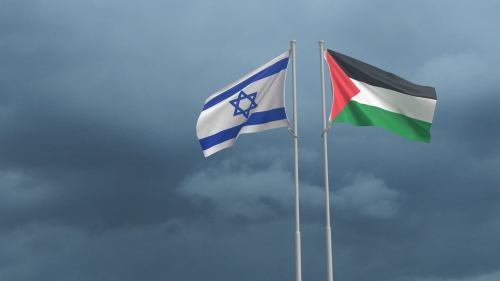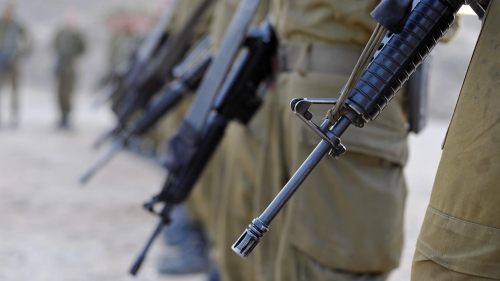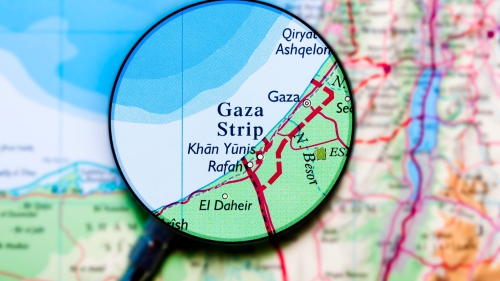The return of exiled palestinian leaders and the future of unity among the opposition
On Oct 2, Palestinian sources confirmed that the Democratic Front for the Liberation of Palestine (DFLP) will be removed from the American list of international terrorist organizations. The news was reported after the American administration informed the Palestinian Authority (PA) of its decision.
Oct 1, one day before the American decision was reached, Ehud Barak informed the press that his government might allow Nayef Hawatmeh, the head of the DFLP to return to the Palestinian controlled territories in the West Bank and Gaza.
While it is understood that the circumstances leading to both American and Israeli decisions are inseparable, one cannot help but wonder what has inspired the American-Israeli gentle touch?
In the meantime, the deputy head of the Popular Front for the Liberation of Palestine (PFLP), Mustafa Zibri (Abu Ali Mustafa), arrived in Jericho Sep 30, after 32 years of exile. Abu Ali was received by hundreds of PFLP supporters in every Palestinian town that his car stopped while traveling to his small hometown of Arabeh in the northern part of the West Bank.
The history of both leaders -- Hawatmeh and Abu Ali Mustafa -- speaks for itself. Both leaders have played major roles in promoting the Palestinian revolution, and for so many years, both have fought many fierce battles against Israeli forces, within Palestine, Jordan and Lebanon.
Although both leaders have declared their intentions to remain within the anti Oslo-Wye opposition, their fundamental ideological shift clearly reflects changing political realities of the once united opposition parties in Damascus.
Some have suggested that Abu Ali's return is a desperate attempt to save the movement from losing its already diminished publicity in the Palestinian streets. According to Khali Shekaki, a Palestinian pollster, the PFLP's approval rates have dwindled from 12 percent to less than 4 percent in the last few years.
Even though such numbers must be considered while tackling this subject, the fact that the movement has remained within the opposition invalidates the explanation that incorporating the PFLP in the peace dialogue in its present form is a way to hunt for more votes. If the movement's publicity was caused by their critical position on the "peace process," the return of Abu Ali Mustafa is hardly enough to reverse the effect of the movement's peace perspective.
Most Palestinian opposition movements are trying to make the best of a very difficult time. Evidently, some are choosing to fight their battle from within Palestine rather than from outside. Because their entrance to the West Bank and Gaza was conditioned on their acceptance of peace talks and the rejection of an arms struggle, those returning leaders must abide by such conditions.
In spite of the fact that Hamas members have endured terrible treatment at home and abroad, the Islamic movement is still in a safer position than others are. While The PFLP and DFLP are certainly facing a complete dismantling following the expected finalization of the peace talks Israel and Syria, Hamas' large popular base is always a place for the movement to maintain its existence and reappearance at any time.
The political circumstances which Hamas and the other opposition movements are exposed to, are considerably different, which makes hasty judgements to who did the right thing and who fell short, unreasonable and unfair. The opposition, despite their revolutionary stands was forced to play the political game, as they had no further need for more hateful enemies, while already engaged in an uneven struggle with Israel. The recent tactics used by the PFLP and DFLP with the PA, and Hamas with the Jordanian government following the recent crackdown, are some of these politically motivated endeavors.
As always, in controversial times such as these, the return of the Palestinian opposition leaders is viewed on two radical scales. One is describing such return as a victory, for Palestinians succeeded in forcing Israel to grant permits to long time revolutionaries. The other sees the return as a sign of defeat and failure of the opposition to remain united so that it can serve the cause that it vowed to serve.
Both views are indeed filled with emotional overstatements. The first view has failed to distinguish between, return and "The Return." Returning to the West Bank was never the goal that the Palestinian armed struggle was founded for. In fact, many freedom fighters fled the West Bank and Gaza in 1967, preferring to fight Israel from a more strategic location, so that they could liberate Palestinian land occupied in 1948. If the goal was returning to Gaza, it seems odd that some have chosen to leave in the first place.
The second view chooses to judge the Palestinian opposition in the narrow scope of the moment. Yet the notion of opposition (which stands for opposing any unjust solution for the Palestinian catastrophe) is an idea and practice that has always been in motion starting earlier this century with Skeik Izz al-Din al-Qassam's struggle until the present.
Therefore, eliminating or curbing the influence of opposition movements, assuming that such a goal is achieved, shall not change the fact that any injustice imposed on Palestinians will always find those who dare to confront it.

















